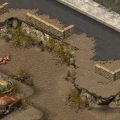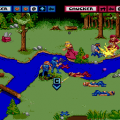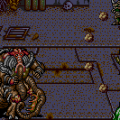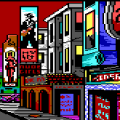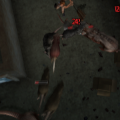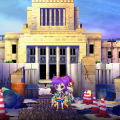Fallout Shelter is a free to play mobile game released as a part of the Fallout 4 promotional campaign. This time, player becomes an Overseer – a person in charge of one of the Vaults. The goal of the game is to expand the Vault and keep all the survivors alive and happy (which completely ignores an important part of the Fallout lore: the fact that Vault-Tec and the Overseers used survivors for social experiments).
In Fallout Shelter, players need to manage three basic resources: food (needed to keep Dwellers healthy), water (needed to deal with radiation) and energy (the most important resource: rooms don’t work without it). Each of them is produced inside a special room (e.g. water treatment plant) which has to be staffed with your Vault Dwellers. The efficiency of each Dweller’s work depends on his SPECIAL stats (each room has a single stat associated with it) and the rooms can produce more resources after receiving upgrades. Each room can hold two Vault Dwellers but it’s possible to create bigger rooms by creating up to few rooms of the same type on a single level. In addition to resource-producing rooms, player can also build training facilities to increase Dwellers’ SPECIAL stats, storage areas to hold more items (weapons, armor and pets which give beneficial effects when equipped on a Dweller), living quarters which allow Dwellers to have children as well as crafting workshops and medical facilities that produce items.
Occasionally, a Vault can be struck by a disaster like a fire, a radroach infestation or a raider attack. Those will interrupt work and force Dwellers to fight against the threat (in case of living enemies, having a weapon equipped will help a lot). Some of the disasters will also happen if the player tries and fails to rush resource production. Dealing with the disaster will usually reduce the Dwellers’ health and may potentially kill them. In addition to health, each Dweller has another stat players should monitor closely: their happiness which affects resource production. Dwellers are happier when their basic needs are taken care of, they do the jobs they’re good at, they’re healthy and they’re in relationships (achieved by putting a male and female Dweller in the same living quarters).
Fallout Shelter allows sending your Dwellers to explore the wasteland. Adventures like that are probably the most reliable way of finding items but they’re full of enemy encounters. If you don’t want the inhabitants of your Vault dying horribly while exploring the outside world, you’d better send the ones with high SPECIAL stats and the best equipment you have.
While the rules might seem complex at first, the game is in fact extremely straightforward, to the point of being simplistic. It also doesn’t have much content. The only reason it’s not possible to do everything there is to do in the game in an hour or two is that most of your time is spent on waiting. Almost everything in the game requires you to wait for something to happen and the most reliable way of cheating is by changing system time on your phone.
Playing Fallout Shelter is fun for a while when you still don’t fully know the mechanics. When you get the hang of it, the game turns into a mindless, repetitive waste of time. There’s very little depth to it, it won’t surprise you and there’s no endgame. It’s a patience-testing skinner box which makes you do the same few actions over and over again (daily objectives mix things up slightly but they’re just too generic – produce X amounts of resource Y, sell Z number of weapons etc. – to make the game interesting) until you get bored and let your Vault collapse without Overseer’s guidance.
Fallout Shelter features microtransactions. It’s not the worst example on the mobile market but it’s still pretty much ‘free to play, pay to win’ situation: you never really have to buy anything but money gives you lunch boxes which often contain powerful Dwellers, good weapons or large amounts of resources. Lunch boxes can be earned by completing daily objectives but not every objective gives a lunch box (most of them just give you in-game money) and there’s only so much you can do during one day in such a waiting-focused game.
It’s obvious that the developers of Fallout Shelter were less concerned in designing a fun game and more with promoting the next big title in the series. Shelter, like most casual games, is fun for a short while but gets boring really quickly. It’s a game that both promotes the franchise and relies heavily on brand recognition. Unfortunately, it never goes beyond just showing a few iconic images – there are no moral dilemmas, no problems with multiple solutions, no exploration, no strategic or tactical depth. After the good first impressions fade, all that remains is a game about waiting, occasionally tapping the screen and watching the bars fill. Your Vault will be bigger, you’ll move on from fighting radroaches to fighting deathclaws, your weapons will get better and you’ll have more resources but those are just changes in a few variables. There’s no real progress here and no ending – you’ll always keep doing the same things you were doing before.






